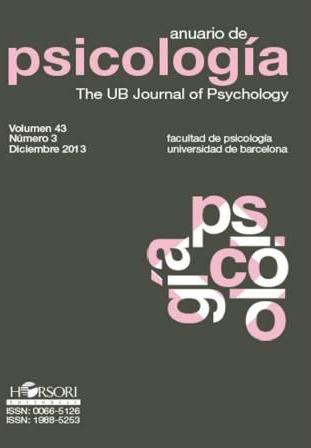Functionality of strategies for self and interpersonal emotion regulation of anger and sadness
Keywords:
emotion regulation strategies, interpersonal emotion regulation, anger, sadnessAbstract
The present study analyzes whether the use of adaptive strategies for the regulation of anger and sadness is congruently associated with the perception that one has successfully improved the emotional experience of oneself (emotional self-regulation) and of others (interpersonal regulation).
296 students recalled episodes of anger and sadness and replied to the Interpersonal Emotion Regulation Questionnaire (CIRE-43) and to a scale for the assessment of achieved regulation emotional goals. Results confirm that a) participants use more adaptive than maladaptive strategies, b) participants use more strategies to regulate their own emotions than those of other people, c) participants tend to use the same strategies for self-regulation as for interpersonal regulation and d) there is a core set of emotion regulation strategies that are adaptive both for self regulation and for interpersonal regulation, because their use was followed by the perception of improvement in the achievement of personal and interpersonal goals (functionality).
Downloads
Published
Issue
Section
License
The authors who publish in this journal agree to the following terms:
Authors transfer to the publisher all copyright for the full term of protection and for all the world.
The authors can post a copy of their articles in accordance with the policy of free access to the journal.


